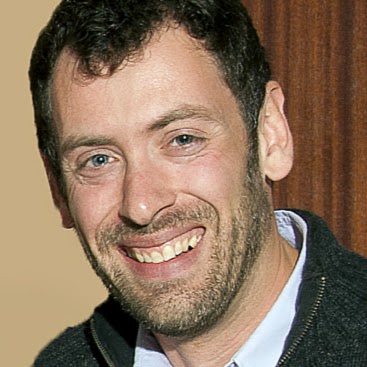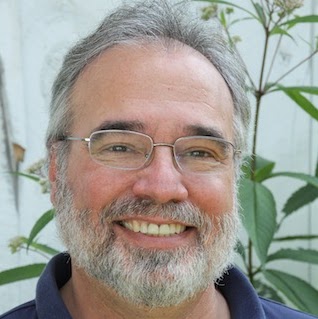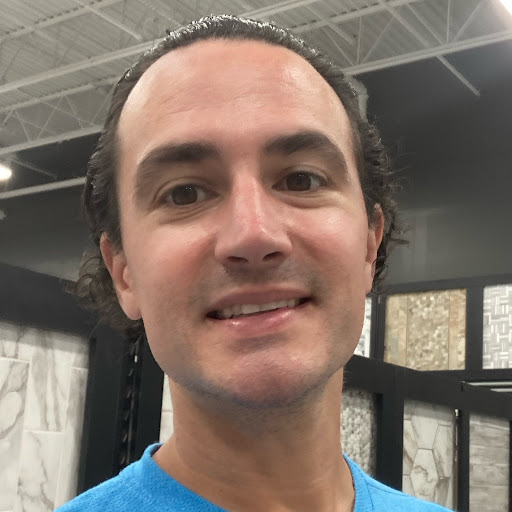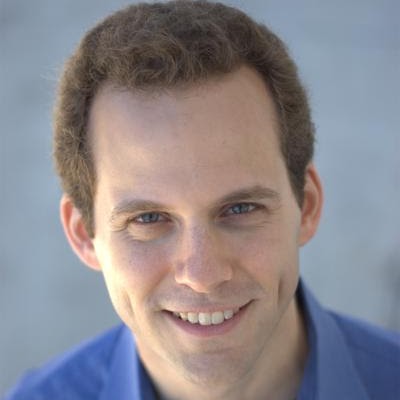Daniel L Lieberman
age ~75
from Wildomar, CA
- Also known as:
-
- Daniel Louis Lieberman
- Daniel J Lieberman
- Dan L Lieberman
- Ivanna J Lieberman
- Ivy Lieberman
- Natalie Lieberman
- Max Lieberman
- Daniel Liebreman
- Phone and address:
-
20490 Bryant St, Wildomar, CA 92595
(909)5535805
Daniel Lieberman Phones & Addresses
- 20490 Bryant St, Wildomar, CA 92595 • (909)5535805
- Riverside, CA
- 210 Broadway, New York, NY 10002 • (212)5984827
- Huntington Beach, CA
- Lake Elsinore, CA
Work
-
Company:Lieberman & selden llp
-
Address:350 Fifth Ave., New York, NY 10118
-
Phones:(212)2790770
-
Position:Manager
-
Industries:Elementary and Secondary Schools
Education
-
School / High School:Brooklyn Law School
Ranks
-
Licence:New York - Due to reregister within 30 days of birthday
-
Date:1991
Lawyers & Attorneys

Daniel Joseph Lieberman, New York NY - Lawyer
view sourceAddress:
Law Offices of Allen I. Gross
50 Broadway Fl 5, New York, NY 10004
(212)4831444 (Office)
50 Broadway Fl 5, New York, NY 10004
(212)4831444 (Office)
Licenses:
New York - Due to reregister within 30 days of birthday 1991
Education:
Brooklyn Law School
Specialties:
Real Estate - 50%
Litigation - 50%
Litigation - 50%

Daniel Lieberman - Lawyer
view sourceISLN:
923883606
Admitted:
2014
University:
Pepperdine School of Law

Daniel Lieberman - Lawyer
view sourceSpecialties:
Government
ISLN:
923229008
Admitted:
2003
University:
Nova Southeastern University - Shepard Broad Law Center
Law School:
Nova Southeastern University - Shepard Broad Law Center, JD - Juris Doctor
License Records
Daniel Lieberman
Address:
New York, NY 10014
License #:
MD037244E - Expired
Category:
Medicine
Type:
Medical Physician and Surgeon
Name / Title
Company / Classification
Phones & Addresses
Manager
Lieberman & Selden Llp
Elementary and Secondary Schools
Elementary and Secondary Schools
350 Fifth Ave., New York, NY 10118
Managing
Earthy Glow, LLC
2801 NE 183 St, Miami, FL 33160
1663 E 23 St, Brooklyn, NY 11229
1663 E 23 St, Brooklyn, NY 11229
FILA U.S.A., INC
930 Ridgeberook Rd SUITE 200, Sparks Glencoe, MD 21152
340 Madison Ave, New York, NY 10017
340 Madison Ave, New York, NY 10017
SCRAP SOLUTIONS LLC
Isbn (Books And Publications)

Interpreting the Past: Essays on Human, Primate, and Mammal Evolution
view sourceAuthor
Daniel Lieberman
ISBN #
0391042475
Resumes

Daniel Lieberman
view source
Daniel Lieberman
view source
Daniel Lieberman
view source
Daniel Lieberman
view source
Daniel Lieberman
view source
Daniel Lieberman
view sourceLocation:
United States

Daniel Lieberman
view sourceLocation:
United States

Daniel Lieberman Brooklyn, NY
view sourceWork:
Ohel Adult Home for Developmentally Disabled Adults and Family Services
Jul 2007 to 2000
Jul 2007 to 2000
Medicine Doctors

Daniel M. Lieberman
view sourceSpecialties:
Surgery , Neurological
Work:
Phoenix Spine Surgery Center
140 N Litchfield Rd STE 110, Goodyear, AZ 85338
(602)2562525 (phone), (602)2560795 (fax)
140 N Litchfield Rd STE 110, Goodyear, AZ 85338
(602)2562525 (phone), (602)2560795 (fax)
Education:
Medical School
University of Arizona College of Medicine at Tucson
Graduated: 1991
University of Arizona College of Medicine at Tucson
Graduated: 1991
Procedures:
Spinal Cord Surgery
Spinal Fusion
Spinal Surgery
Carpal Tunnel Decompression
Craniotomy
Lumbar Puncture
Spinal Fusion
Spinal Surgery
Carpal Tunnel Decompression
Craniotomy
Lumbar Puncture
Conditions:
Intervertebral Disc Degeneration
Intracranial Injury
Intracranial Injury
Languages:
English
Spanish
Spanish
Description:
Dr. Lieberman graduated from the University of Arizona College of Medicine at Tucson in 1991. He works in Goodyear, AZ and specializes in Surgery , Neurological. Dr. Lieberman is affiliated with Abrazo West Campus and Saint Joseph Hospital & Medical Center.

Daniel Lieberman
view sourceSpecialties:
Psychiatry, Addiction Psychiatry
Work:
George Washington Medical Faculty AssociatesMedical Faculty Associates Psychiatry
2120 L St NW STE 600, Washington, DC 20037
(202)7412900 (phone), (202)7412891 (fax)
2120 L St NW STE 600, Washington, DC 20037
(202)7412900 (phone), (202)7412891 (fax)
Education:
Medical School
New York University School of Medicine
Graduated: 1992
New York University School of Medicine
Graduated: 1992
Conditions:
Anxiety Phobic Disorders
Attention Deficit Disorder (ADD)
Bipolar Disorder
Depressive Disorders
Post Traumatic Stress Disorder (PTSD)
Attention Deficit Disorder (ADD)
Bipolar Disorder
Depressive Disorders
Post Traumatic Stress Disorder (PTSD)
Languages:
English
Spanish
Spanish
Description:
Dr. Lieberman graduated from the New York University School of Medicine in 1992. He works in Washington, DC and specializes in Psychiatry and Addiction Psychiatry. Dr. Lieberman is affiliated with George Washington University Hospital.

Daniel Lieberman
view sourceSpecialties:
Psychiatry
Child & Adolescent Psychiatry
Neurological Surgery
Child & Adolescent Psychiatry
Neurological Surgery
Education:
Universidad C.E.T.E.C. (1982)
Columbia University (1991) *Child Psychiatry
Columbia University (1991) *Child Psychiatry
Youtube
Googleplus

Daniel Lieberman
Lived:
Oakland, CA
Oceanside, NY
Madrid, Spain
Washington, DC
Waltham, MA
Nairobi, Kenya
Oceanside, NY
Madrid, Spain
Washington, DC
Waltham, MA
Nairobi, Kenya
Work:
Chevron Corporation - Corporate Carbon Management Advisor (2007)
ICF International - Corporate Strategy (2006-2007)
ICF Consulting - Senior Consultant (2000-2006)
ICF International - Corporate Strategy (2006-2007)
ICF Consulting - Senior Consultant (2000-2006)
Education:
Brandeis University - Economics & Environmental Science, The George Washington University School of Business - MBA, Strategic Environmental Management
About:
Climate change economist, carbon policy expert, GHG emissions accountant, investment advisor, striving to effect positive global change through business contribution to society
Tagline:
In it to win it
Bragging Rights:
Lucky husband, father of two, tech-geek

Daniel Lieberman
Lived:
Shelburne Falls, Massachusetts
Westfield, New Jersey
Manhattan
Brooklyn
Westfield, New Jersey
Manhattan
Brooklyn
Education:
Westfield Senior High School, Kalamazoo College, The New School
Relationship:
In_a_relationship
About:
I am a consultant, speaker, and writer.My partner Rick Feldman and I have started InCommN as a way to build a healthy community of entrepreneurs in Western New England. We are passionate networkers an...
Tagline:
"Men are more moral than they think and far more immoral than they can imagine." Sigmund Freud
Bragging Rights:
Founder of "Don't Eat Lunch Alone"

Daniel Lieberman
Lived:
New York, NY
Education:
Pepperdine University School of Law - JD/MDR, Cornell University - Industrial and Labor Relations

Daniel Lieberman
Work:
BitPusher, LLC

Daniel Lieberman

Daniel Lieberman

Daniel Lieberman

Daniel Lieberman
Flickr
Myspace
News

Five practical and proven methods to living better, longer
view source- Up to age 80 or so, longer life is mostly due not to genetics, but to environmental factors, including healthy behaviors such as physical activity, says Daniel Lieberman, chair of the department of human evolutionary biology at Harvard University.
- Date: Oct 13, 2022
- Category: Health
- Source: Google

Why aren't medical breakthroughs in obesity a bigger deal?
view source- As Harvard University evolutionary biologist Daniel Lieberman explores in his book, The Story of the Human Body: Evolution, Health, and Disease, the idea of maintaining a durable calorie deficit when food is objectively abundant goes against millions of years of primate evolution. In pre-modern co
- Date: Sep 14, 2022
- Category: Health
- Source: Google

There's a Limit to Human Endurance, Right Before Your Body Starts Eating Itself
view source- "It's very cool data," evolutionary biologist Daniel Lieberman from Harvard University, who wasn't involved in the study, told Michael Price at Science. "It makes a very convincing case that at the extremes of human endurance, there's a hard limit."
- Date: Jun 06, 2019
- Category: Science
- Source: Google

Who were those enigmatic 'hobbits'? 700000-year-old fossils hold clues (+video)
view source- "Homo sapiens didn't exist 700,000 years ago. Our species evolved in Africa some time around 200,000 years ago," Daniel Lieberman, a paleoanthropologist at Harvard University who was not part of the studies, tells the Monitor in an interview. "So it's just simply impossible, unless the dates are wil
- Date: Jun 09, 2016
- Category: Sci/Tech
- Source: Google

Mysterious 'hobbit' people died out earlier than thought, study suggests
view source- Regardless, H. floresiensis "highlights how much variation there probably was in the human family tree," Daniel Lieberman, a paleoanthropologist at Harvard University who was not part of the study, tells the Monitor in an email.
- Date: Mar 30, 2016
- Category: Sci/Tech
- Source: Google

Thank Raw Meat for How You Look Today! Slicing, Cooking Animal Flesh Helped Human Evolution
view source- Study author Daniel Lieberman, evolutionary biologist at Harvard University, explained that the Homo Erectus evolved to have bigger brains and modern humans had less need to have more powerful jaws and teeth because of less chewing.
- Date: Mar 10, 2016
- Category: Sci/Tech
- Source: Google

How Food Processing Helped You Learn How To Talk
view source- Evolutionary biologists Daniel Lieberman and Katherine Zink from Harvard University examined how early techniques in preparing and even consuming food helped our ancestors developed smaller jaws and teeth that were more finely tuned for speaking.
- Date: Mar 10, 2016
- Category: Sci/Tech
- Source: Google

Mastication adaptation: easier chewing benefited human ancestors
view source- "Shortening the snout might have been beneficial for producing articulate speech, for having a more balanced head, especially useful when running, or perhaps for other reasons," Harvard University evolutionary anthropologist Daniel Lieberman said.
- Date: Mar 10, 2016
- Category: Sci/Tech
- Source: Google
Plaxo

Daniel Lieberman
view source
Daniel Lieberman
view source
Daniel Lieberman
view source
Daniel Sid Lieberman
view source
Daniel Lieberman
view source
Daniel Lieberman
view source
Daniel Lieberman
view source
Daniel Lieberman
view source
Daniel Lieberman
view sourceClassmates

Daniel Lieberman
view sourceSchools:
Milwaukee Jewish Day School Milwaukee WI 2000-2004
Community:
Benny Arnold, Zak Cocos, Maggie Alefsen

Daniel Lieberman
view sourceSchools:
Our Lady of Mercy School Potomac MD 1998-2002
Community:
Mark Katz, Pamela Gaston

Daniel Lieberman
view sourceSchools:
Ravinia Elementary School Highland Park IL 1969-1973
Community:
John Eckstone, Lois Winters, Ari Trubitt, Liz Kahn, Michael Mizel

Daniel Lieberman
view sourceSchools:
Coudersport High School Coudersport PA 2002-2006
Community:
Teddy Martin, Al Joy, Glenda Springer, Kenneth Yentzer

Daniel Lieberman
view sourceSchools:
Hillel Community High School North Miami Beach FL 1984-1988
Community:
Renee Schultz

Ravinia Elementary School...
view sourceGraduates:
Robert Muehlberg (1946-1950),
Elizabeth Asher (1999-2003),
Jennifer Hensley (1976-1984),
Bill Greenebaum (1959-1963),
Daniel Lieberman (1969-1973)
Elizabeth Asher (1999-2003),
Jennifer Hensley (1976-1984),
Bill Greenebaum (1959-1963),
Daniel Lieberman (1969-1973)

University of California ...
view sourceGraduates:
Dan Lieberman (1982-1983),
Rafael Quiroga (1992-1995),
Tomas Allsbrooks (2007-2011),
Giorgio Quintero (1975-1978),
Alison Kendall (1984-1988)
Rafael Quiroga (1992-1995),
Tomas Allsbrooks (2007-2011),
Giorgio Quintero (1975-1978),
Alison Kendall (1984-1988)

Coudersport High School, ...
view sourceGraduates:
Daniel Lieberman (2002-2006),
Chyrl Boyd (1963-1967),
Lynne Houck (1975-1979),
Jeffrey McManus (1975-1979),
Robert Peet (1964-1968)
Chyrl Boyd (1963-1967),
Lynne Houck (1975-1979),
Jeffrey McManus (1975-1979),
Robert Peet (1964-1968)
Get Report for Daniel L Lieberman from Wildomar, CA, age ~75















